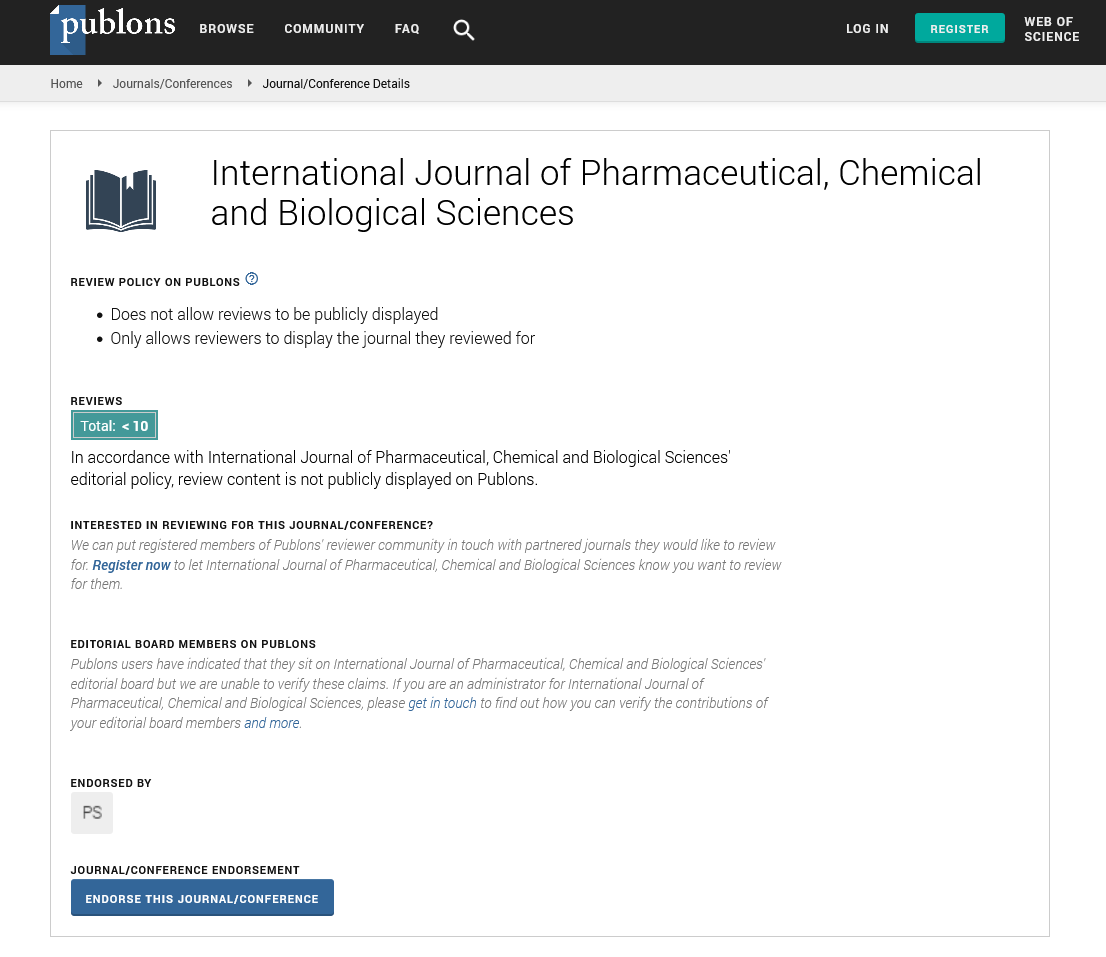Abstract
Author(s): Aminabee Sk1*, Prabhakar MC2, Prasad RGSV2, Lakshmana Rao A1 and Ram Mohan Rao CH2
Biosurfactants or surface active agents are produced by microorganisms. These molecules reduce surface tension both aqueous solutions and hydrocarbon mixtures. Although a large number of biosurfactant producers have been reported in the literature, biosurfactant research, particularly related to production enhancement and economics, has been confined mostly to a few genera of microorganisms such as Bacillus, Pseudomonas and Candida. Biosurfactants are not only useful as antibacterial, antifungal and antiviral agents but also have the potential for use as major immunomodulatory molecules, adhesive agents and even in vaccines and gene therapy. In the present study we have examined the effect of biosurfactant in vitro. For this purpose we have choosen frog as an experimental animal and the tissue was frog isolated heart. Biosurfactant elicited dose-dependent cardiac depressant activity. Atropine (ATP), a muscarinic blocker could not antagonize the effects of biosurfactant which indicate that the activities are not mediated through muscarinic receptors. Key words
Haberler
Haberler
Haberler
Haberler
Haberler
Haberler
Haberler
Haberler
Haberler
Haberler
Haberler
Haberler
Haberler
Haberler
Haberler
Haberler
Haberler
Haberler
Haberler
Haberler
Haberler
Haberler
Haberler
Haberler
Haberler
Haberler
Haberler
Haberler
Haberler
Haberler
Haberler
Haberler
Haberler
Haberler
Haberler
Haberler
Haberler
Haberler
Haberler
Haberler
Haberler
Haberler
Haberler
Haberler
Haberler
Haberler
Haberler
Haberler
Haberler
Haberler

